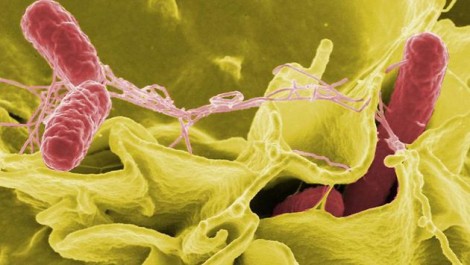Food poisoning is a terrible thing to have to endure. It can be at times be so severe that a person is admitted into a hospital with the disease because of symptoms of vomiting and diarrhea. Food poisoning is caused when a person eats or drinks something that is contaminated by bacteria, parasites or viruses.
We have put together a definitive guide to food poisoning and everything you need to know about how to diagnose, prevent and treat this nasty illness.
Causes
The cause of food poisoning comes from contamination of food.
Pathogens are found in nearly everything we eat. We cook our food to kill pathogens. Foods that are eaten raw commonly cause food poisoning because they have not gone through the cooking process.
How the food has been produced, prepared and where it has been stored will put the food at risk of contamination.
Some common causes of food contamination that cause food poisoning are as follows:
- A person who does not wash their hands before preparing food.
- Using dirty utensils, cutting boards, or other tools used to prepare the food.
- Foods are not stored in the proper conditions or are left too long in temperatures at which microorganisms can thrive.
- Meat that comes into contact with an animal’s intestinal bacteria or feces and is not cooked long enough to kill the germs
- The water that is used to grow or prepare the food which contains human or animal
Foods that are especially vulnerable to the above contaminations and that commonly cause food poisoning are as follows:
- Foods containing mayonnaise left out of the refrigerator too long
- Unpasteurized dairy, fruit juice and vegetables
- Frozen or refrigerated foods that are left out of the refrigerator too long or are improperly reheated
- Smoked or salted fish
- Unpasteurized dairy, fruit juice and vegetables
- Untreated drinking water, including well water and stream water
- Home-canned foods or improperly canned commercial foods
- Raw or undercooked fish, shellfish, meat, and eggs
Common Symptoms
If you have food poisoning, then it will more than likely not go undetected. The typical symptoms can vary depending on the source. They can be quite mild to severe, and even life-threatening.
Some common symptoms of food poisoning are as follows:
- A headache
- Nausea and vomiting
- Intestinal discomfort or cramps
- Watery diarrhea (may be bloody)
- Fever and chills
- Weakness
- Dehydration
- Dizziness
Is it time to see a doctor?
Food poisoning symptoms in most cases are quite mild and will clear up on their own with self-care after a few days. However, in severe cases of food poisoning, an individual may require medical attention. A person may need hydration with intravenous fluids at a hospital and may even require hospitalization. Contact your doctor immediately if any of the following is true:
- You have diarrhea after recently traveling to a foreign country
- Your symptoms include a stiff neck or confusion
- You have diarrhea and cannot keep down liquids because of vomiting or nausea
- Diarrhea does not resolve after 5 days (2 days in a child or infant) or gets worse with time
- The infected person is very young or old, is pregnant, or has another serious medical condition
- You have noticed segments of worm in your stool
- Your stools contain blood or pus
- You have signs of dehydration (dizziness, thirst, lightheadedness)
- You have food poisoning after eating fish or mushrooms
- You have a fever higher than 101°F, or your child has a fever higher than 100.4°F




